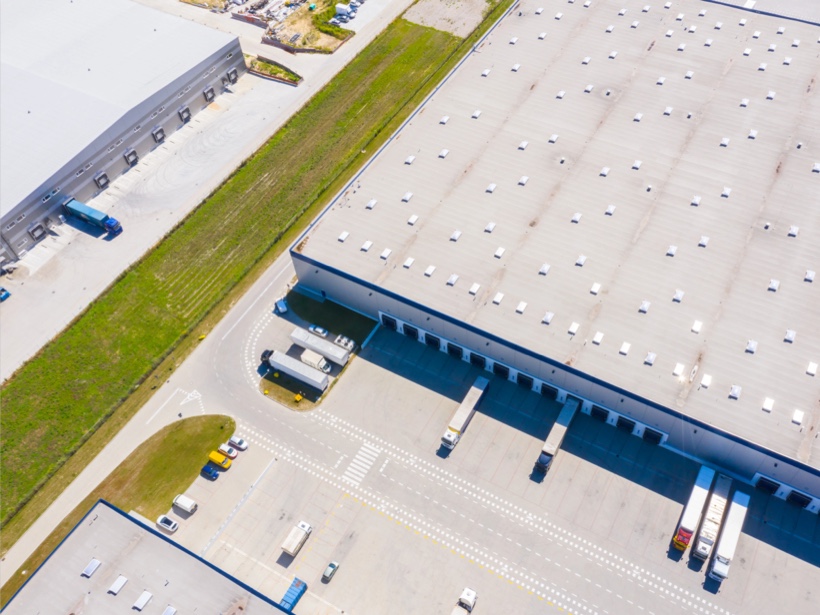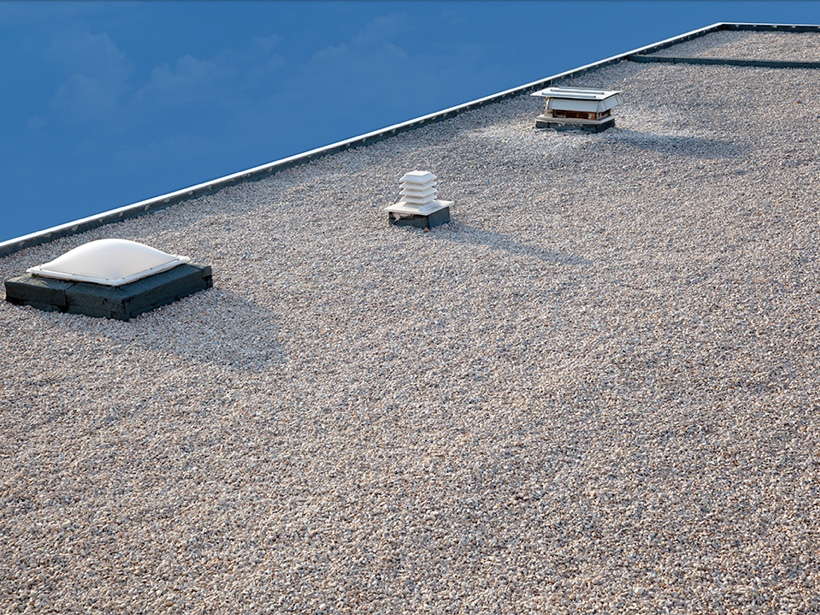
Choosing the right material for a commercial roof is a crucial decision that can impact your building’s durability, long-term cost, and energy efficiency. There are several popular options, each offering advantages depending on the climate, budget, and desired level of maintenance.
In this article, we guide you through a comparison of the main types of commercial roofing materials: elastomeric membrane, built-up asphalt and gravel membrane, monolithic membrane, EPDM, TPO, and PVC.
1. Elastomeric Membrane
The elastomeric membrane is a very common choice in Quebec due to its resistance to freezing temperatures and UV rays. It consists of two layers (a base layer and a finishing layer) and is heat-welded to create a waterproof and durable barrier.
Advantages:
- Excellent waterproofing
- Good durability (20 to 30 years)
- Easy maintenance
Ideal for:
Commercial buildings exposed to significant climate variations and those requiring a robust membrane that performs well in all seasons.

2. Built-Up Asphalt and Gravel Membrane
A classic and proven solution, the built-up roof is made of multiple asphalt-saturated layers topped with gravel.
Advantages:
- Very good fire resistance
- Good longevity (up to 25 years)
- Good protection against thermal shocks
Perfect for:
Flat roofs on large industrial or institutional buildings, where durability and stability are top priorities.
3. Monolithic Membrane (Polyurethane or Polyurea)
Monolithic membranes are applied in liquid form, creating a seamless, uniform layer that is completely waterproof.
Advantages:
- Seamless, continuous waterproofing
- Quick application, even on complex surfaces
- Adaptability to various shapes and structures
Ideal for:
Projects with irregular roofs or those featuring numerous technical elements (vents, pipes, drains, etc.).
4. EPDM (Ethylene-Propylene-Diene Monomer)
EPDM is a single-ply synthetic rubber membrane, widely used for flat roofs due to its flexibility and durability.
Advantages:
- High resistance to UV and ozone.
- Average lifespan of 25 to 30 years.
- Very good performance in cold climates.
Perfect for:
Commercial buildings looking for a reliable, cost-effective solution that withstands extreme temperature variations.
5. TPO (Thermoplastic Polyolefin)
TPO is a highly reflective white membrane, valued for its energy-saving properties and excellent cost-performance ratio.
Advantages:
- Reduced air conditioning costs thanks to the reflective surface.
- Resistant to mold, tears, and chemicals.
- Simple and efficient installation.
Ideal for:
Businesses focused on energy efficiency and long-term savings, especially in the commercial and institutional sectors.
6. PVC (Polyvinyl Chloride)
PVC is a durable membrane highly resistant to chemicals, grease, and oils. It is heat-welded for excellent waterproofing.
Advantages:
- Excellent weldability.
- Exceptional resistance to chemical contaminants.
- Lifespan of 20 to 30 years.
Perfect for:
Industrial buildings, food processing plants, or restaurants, where roofs are often exposed to corrosive substances.
Factors to consider before choosing
1. Climate
In Quebec, harsh winters and hot summers require flexible materials that can withstand freeze-thaw cycles. Elastomeric membranes, EPDM, and TPO are often preferred for this reason.
2. Budget
- Cost-effective solutions: multilayer membrane, TPO, EPDM.
- Long-term solutions: PVC, elastomeric membrane.
3. Maintenance
- Low maintenance: TPO, PVC, EPDM.
- More frequent maintenance: multilayer membrane, monolithic membrane.
In conclusion
Choosing the right material for a commercial roof depends on the local climate, the allocated budget, the type of building, and the desired maintenance frequency. Each material has its strengths, and a good choice ensures peace of mind for years to come.
At LK Toitures, we assist you in choosing the best commercial roofing solution tailored to your needs.


